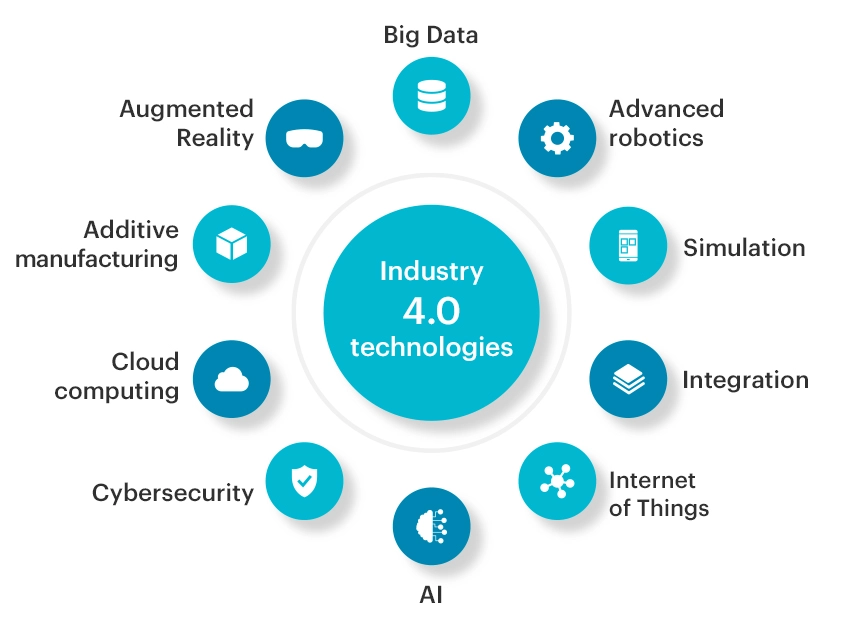Industry 4.0 is a set of advanced technologies that are used to create smart factories and improve the efficiency, flexibility, and competitiveness of the manufacturing process. Some of the key Industry 4.0 technologies trainings we provide:
- Industrial Internet of Things (IIoT): IIoT technology is used to connect machines, devices, and sensors to a network, allowing for the real-time exchange of data.
- Artificial Intelligence (AI) and Machine Learning (ML): AI and ML technologies are used to analyse large amounts of data and make predictions about the manufacturing process, such as identifying patterns, detecting anomalies, and optimizing production.
- Robotics and Automation: Robotics and automation technologies are used to automate repetitive tasks, improve efficiency, and reduce human error.
- Cyber-Physical Systems (CPS): CPS technologies are used to integrate the physical and digital worlds, allowing for the real-time monitoring and control of machines and devices.

- Cloud Computing: Cloud computing technologies are used to store and process large amounts of data, allowing for the analysis of data in real-time.
- Augmented Reality (AR) and Virtual Reality (VR): AR and VR technologies are used to enhance the human-machine interface, allowing for the visualization of complex data and the training of employees.
- Additive Manufacturing (AM) or 3D Printing: AM technologies are used to create physical objects by adding layers of material, allowing for the rapid prototyping and production of parts.
- Blockchain: Blockchain technologies are used to secure and manage data transactions and to ensure the integrity of data.
These technologies are not mutually exclusive and often used together to create a smart and connected factory. Industry 4.0 technologies enable the manufacturing process to be more efficient, more flexible and more responsive to changes in demand. It also enables the use of real-time data and analytics to improve decision-making and increase the speed of innovation. Additionally, Industry 4.0 technologies provide a more secure and transparent supply chain, and it allows for greater customization of products.

